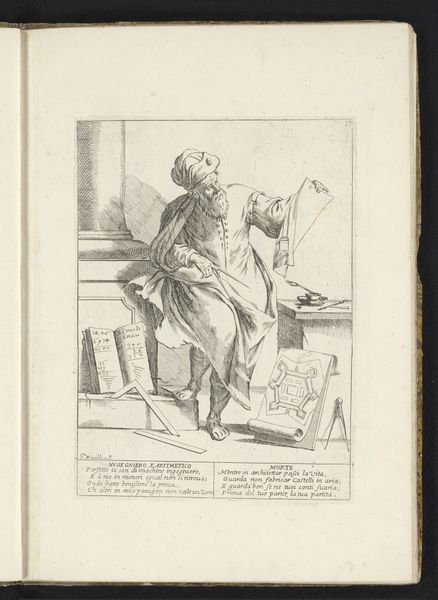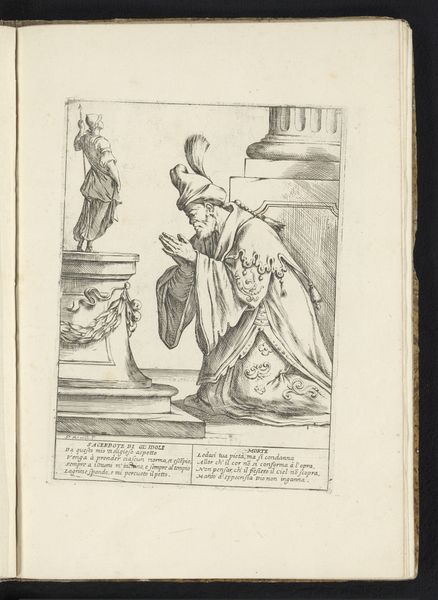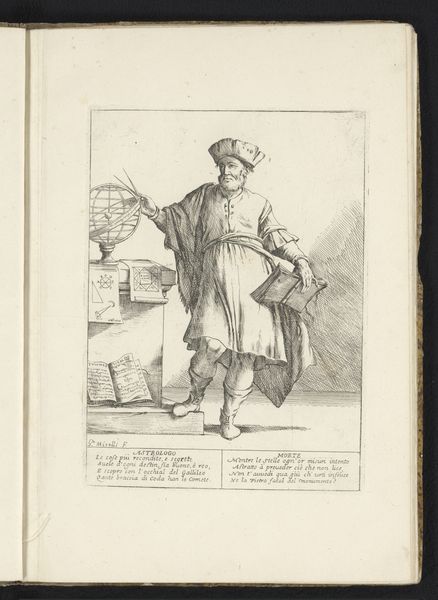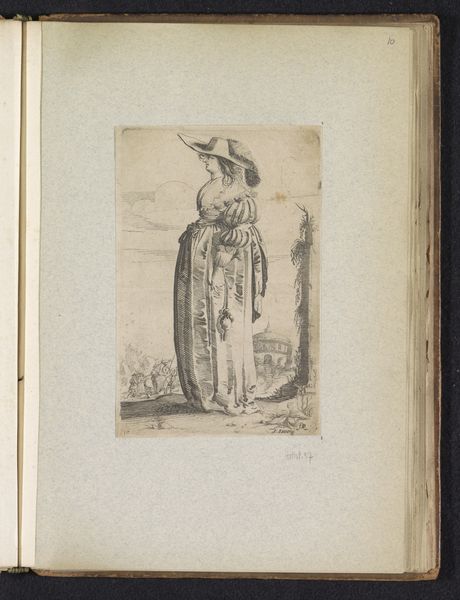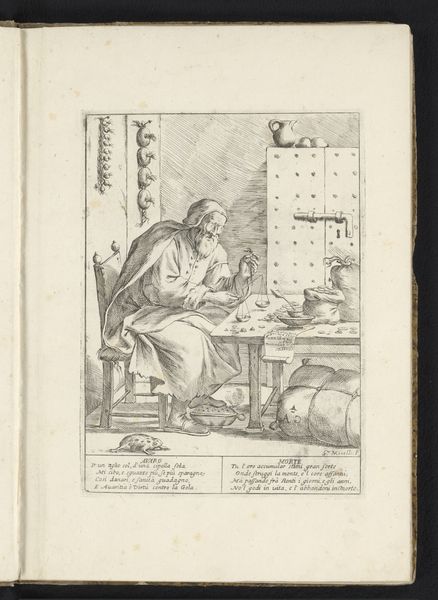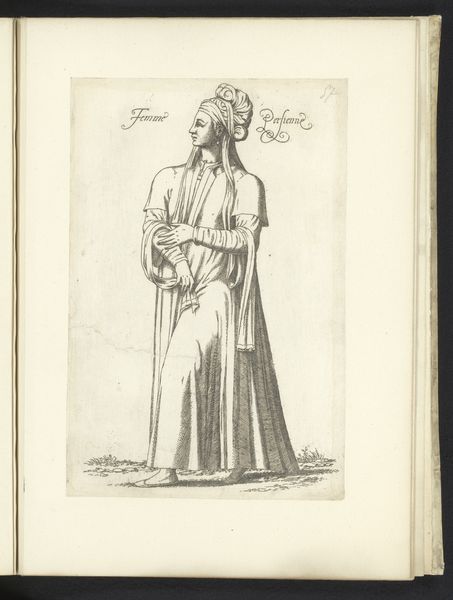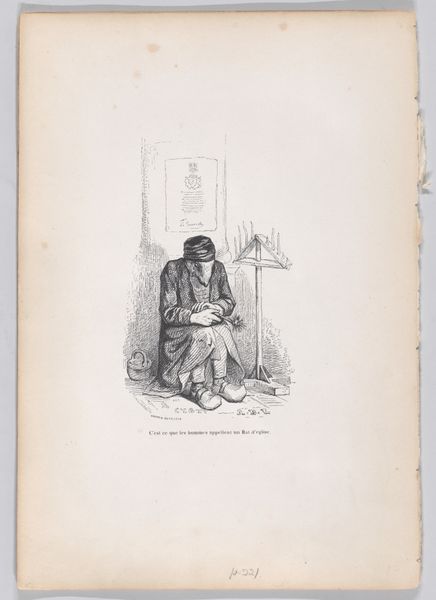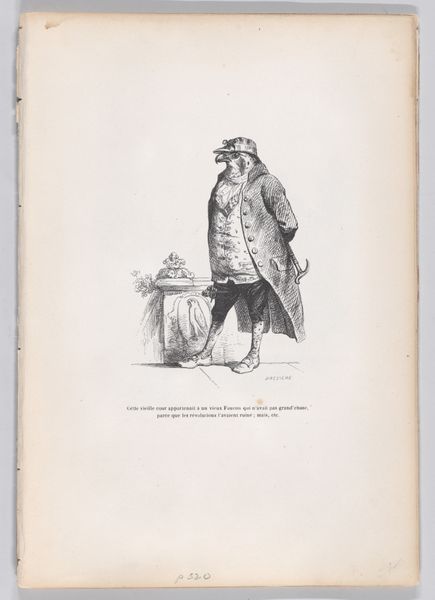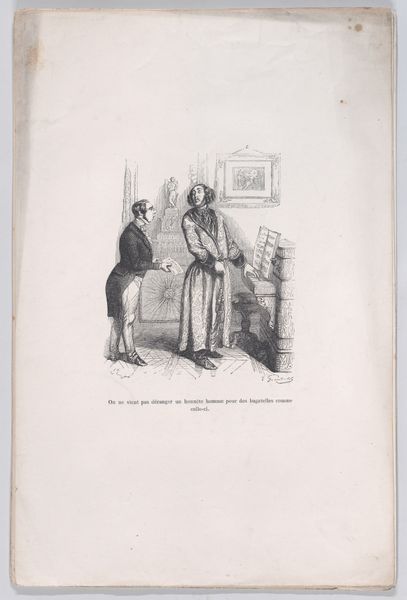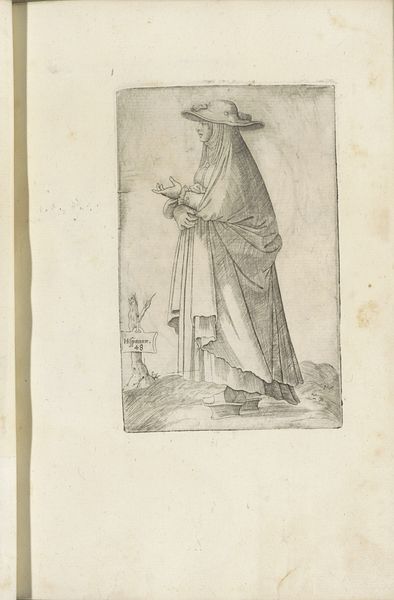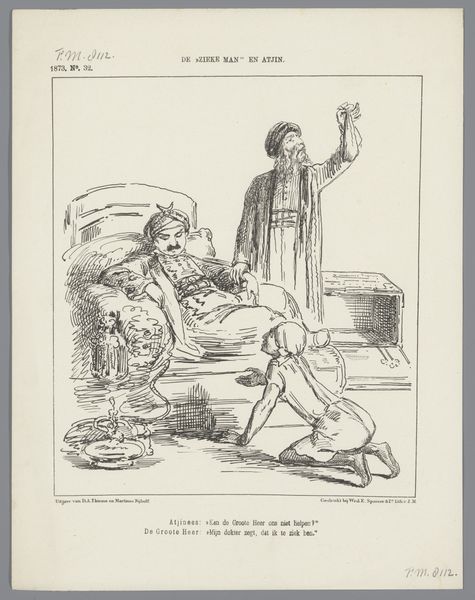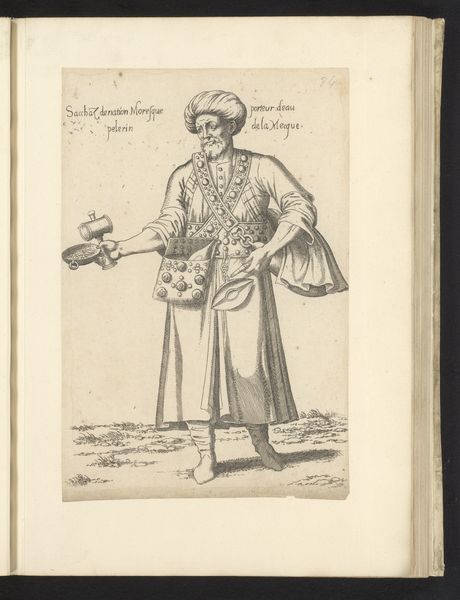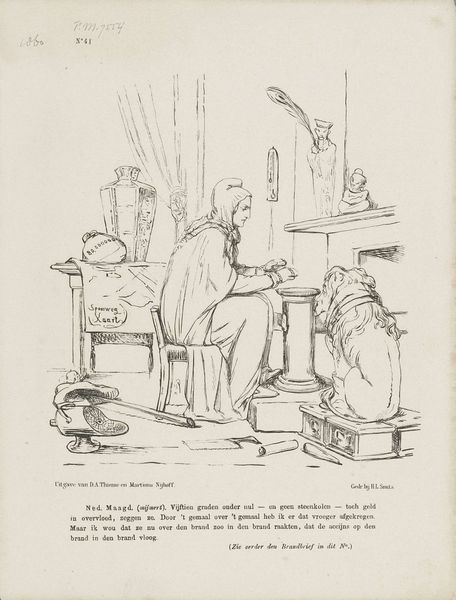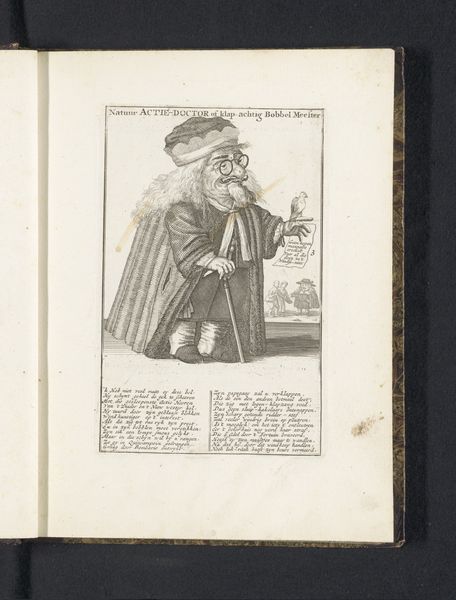
drawing, ink, pen, engraving
portrait
drawing
narrative-art
baroque
ink
pen
engraving
Dimensions: height 275 mm, width 200 mm, height 394 mm, width 280 mm
Copyright: Rijks Museum: Open Domain
Curator: This is “The Poet,” an engraving rendered around 1675 by Giuseppe Maria Mitelli. It currently resides in the Rijksmuseum. I find myself particularly drawn to its poignant exploration of societal expectations. Editor: It strikes me first as incredibly forlorn. The figure’s thin lines suggest fragility. Look at how his robes appear almost tattered and draped, suggesting a kind of vulnerable deconstruction. Curator: Yes, I read that vulnerability as a direct commentary on the poet’s place within the socio-political landscape of the time. Mitelli consistently critiqued systems of power, using satire to reveal the plight of marginalized figures. Consider the visual weight of his poverty contrasted with his expected erudition. Editor: The tools around him – books, quill, ink – hint at erudition, but these objects don’t offer material comfort, do they? His downcast eyes are telling. There's a weight of unmet expectations; perhaps, the failure of intellectual pursuit to provide solace, reflected through a decline of his stature, not necessarily a physical state, but his overall prestige. Curator: Absolutely, it reflects a wider issue: the patronage system. What happens to artistry when social systems can no longer uplift it? Mitelli uses the poet’s attire to expose a system indifferent to genuine intellect, obsessed with outward appearances instead. Editor: Beyond the societal critique, the arrangement of symbolic items - the discarded papers, the prominent inkwell - lends an introspective and personal mood, which invites one to empathize with this particular artist's plight. Curator: Mitelli’s artistic intervention serves as a bridge between 17th century discourse and modern-day conversations about the lived experience and economics of artists. Editor: Precisely. Mitelli allows us to reflect on that struggle of recognition for creativity throughout the ages, which ultimately renders it universally resonant.
Comments
No comments
Be the first to comment and join the conversation on the ultimate creative platform.
